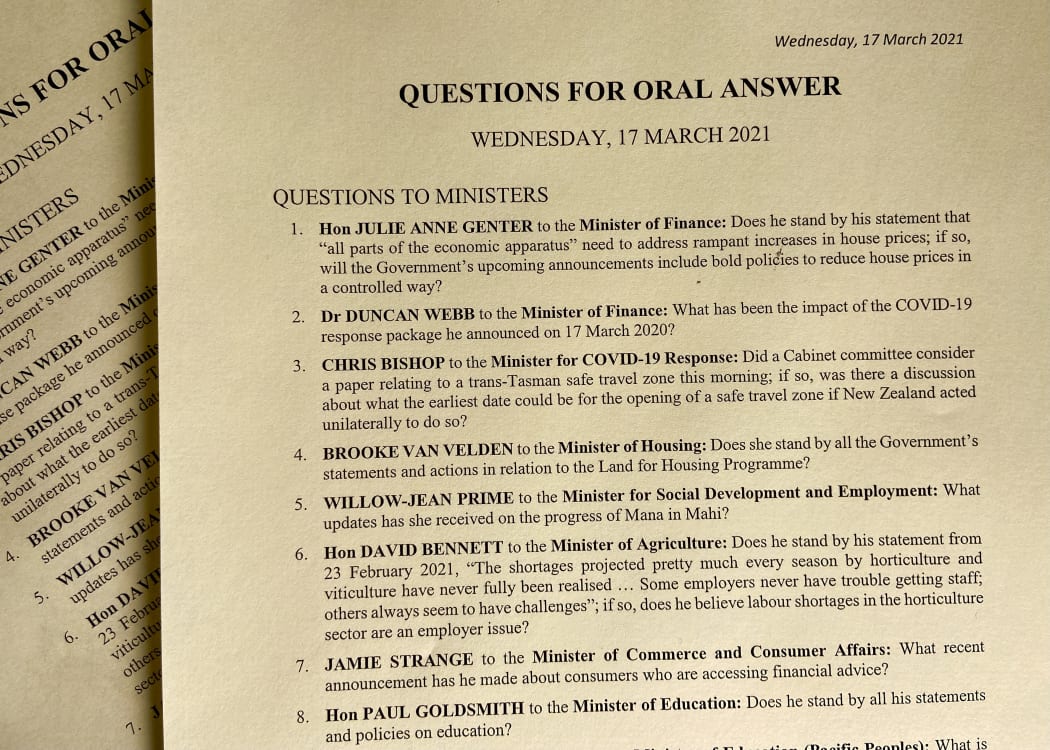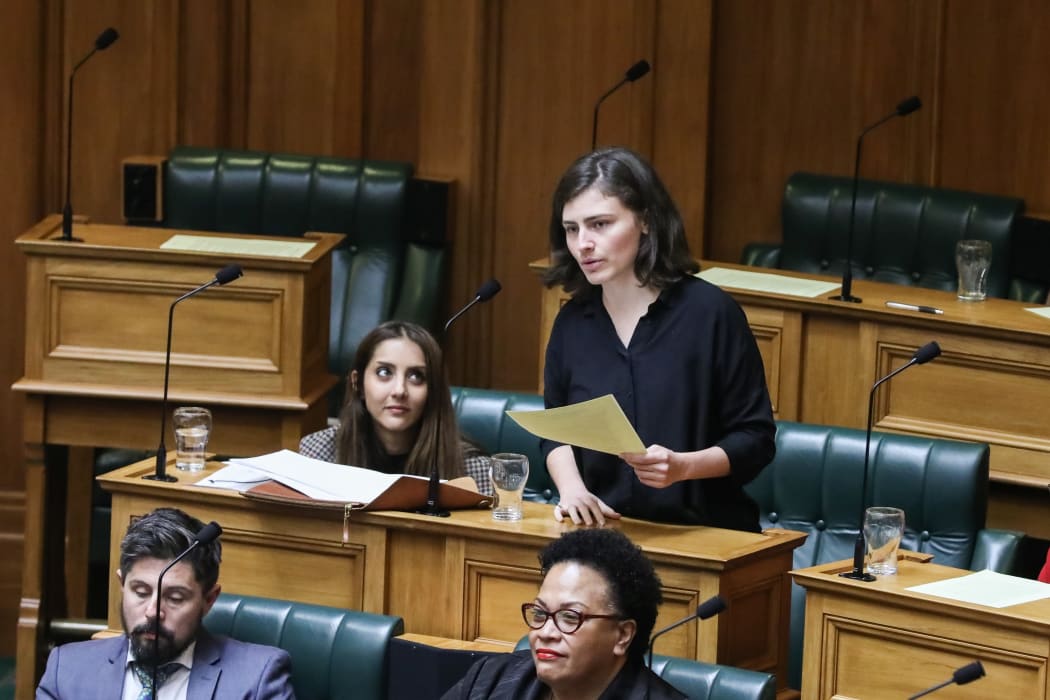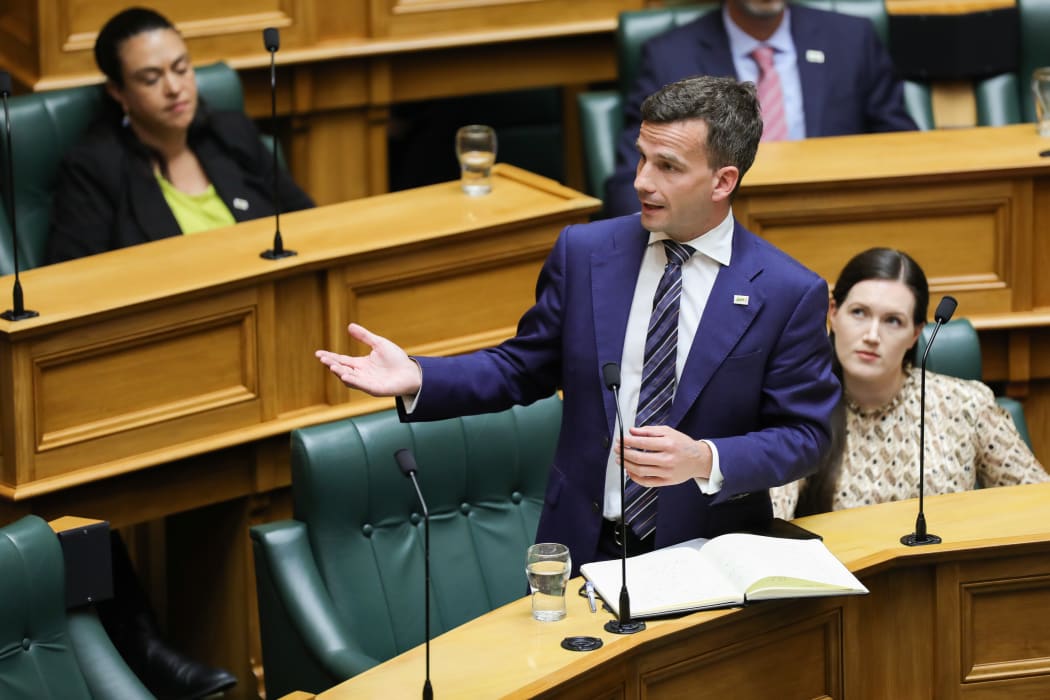Parliament has seen an unusual increase recently in what is usually a rare event - a 13th question.
You probably know the basics - every sitting day at Parliament Question Time involves twelve questions to ministers.
For reasons possibly lost to the mists of time there are always twelve primary questions to ministers (plus a few dozen follow-ups). They can all be to the same minister or to different ministers - but twelve is the magic number.
I have no idea why twelve. Maybe there were twelve ministers in early cabinets, possibly it relates to the calendar, the clock or the biblical importance of dozens (disciples, tribes of Israel, etc).

The daily published list of primary questions to ministers. Photo: ©VNP / Phil Smith
Anyway, it’s twelve.
Except, very rarely, when the questions escape from targeting solely ministers and zero in on backbench MPs. And then twelve becomes thirteen.
Questions can only be asked of MPs that have a responsibility that the House oversees. In the case of ministers it’s their ministerial role.
In the case of members they are asked very occasional questions as the chairperson of a select committee; but they can only discuss things their committee has already made public - so this is less exciting.
More commonly - though still unusual - it is because they are in charge of a member’s bill, one of those non-government bills picked at random from the ballot.
Usually the questions are ones they have arranged themselves for the purpose of campaigning for support for their bill.
'Could the member tell us about their member's bill?'
'Gee, thanks for asking that very surprising question I wrote, I'd love to tell you all about my bill.'
That extra question has become increasingly common this year. You might see the trend line better if we go back four years to the beginning of the previous Parliament when an extra question to a member was rare.

Green MP Chloe Swarbrick asks a question watched by her colleague Golriz Ghahraman Photo: ©VNP / Phil Smith
In January 2018 Chloe Swarbrick arranged to be asked a patsy question about her cannabis member’s bill.
Some months later (if memory serves), Jonathan Young was asked one as the chairperson of the Commerce Select Committee; as was Raymond Huo as chair of the Justice Select Committee. But it was pretty scattered, just a few questions to members a year.
This year those questions have blossomed.
In March ACT MP Tony Severin had a question for Labour’s Teresa Ngobi about her member’s bill.
In April former National Nick Smith arranged a patsy about his own member’s bill.
Last week National MP Louise Upston also arranged a patsy on her member’s bill so as to express some frustration about its recent progress.
You can see there seems to be a trend line; once or twice a year becoming nearly monthly.
This week that line rocketed, when every single MP from ACT lined up to ask their leader David Seymour about a member’s bill of his that was newly pulled from the ballot. Nine separate primary questions.

'Excellent question, I'm so glad you asked me that'. (file photo). Photo: ©VNP / Phil Smith
One day probably included as many questions to a member as the previous four years had.
There are no limits on questions to members and usually the Speaker can manage the time taken by limiting the number of supplementary questions he allows to follow a question. But ACT had found a way round this, just have nine primary questions, each one asked by a different MP, then if no follow-ups were allowed you still got nine questions.
As a result David Seymour got to talk about his newly chosen member’s bill for about ten minutes. That’s nearly as long as the 15 minutes he is likely to get on it in formal debate (the chances of it passing a first reading aren't huge).
In the meantime David Seymour appeared to be having a marvelous time. It was difficult to tell whether he was enjoying the comedy of it (he was playing it up a fair bit), or had found a new limited form of filibustering, or was just promoting his new bill - possibly all of the above.
It was certainly new. He even got to lecture the house on ‘the tragedy of the commons’, which is an economic/psychology theory that all the parties present probably agreed on.
It will be interesting to see how many questions to members there are in Parliament’s next sitting block, starting August 3rd.
With no formal limit, this sudden blooming of questions could become a regular thing or be just a passing fancy - anything is possible.


